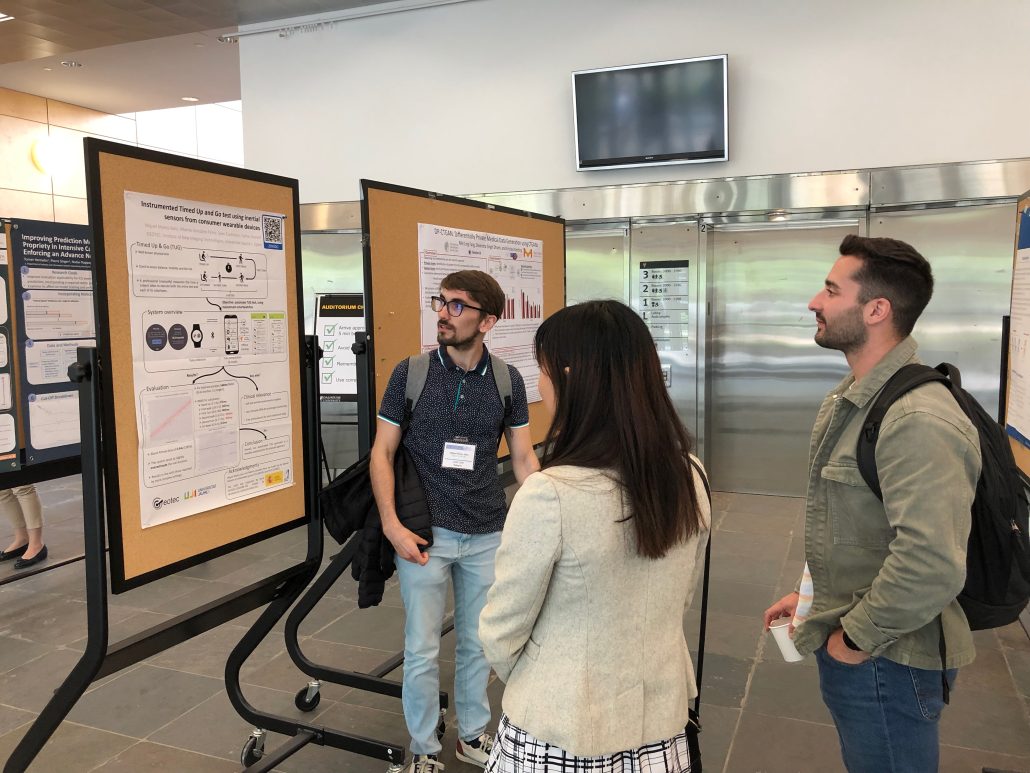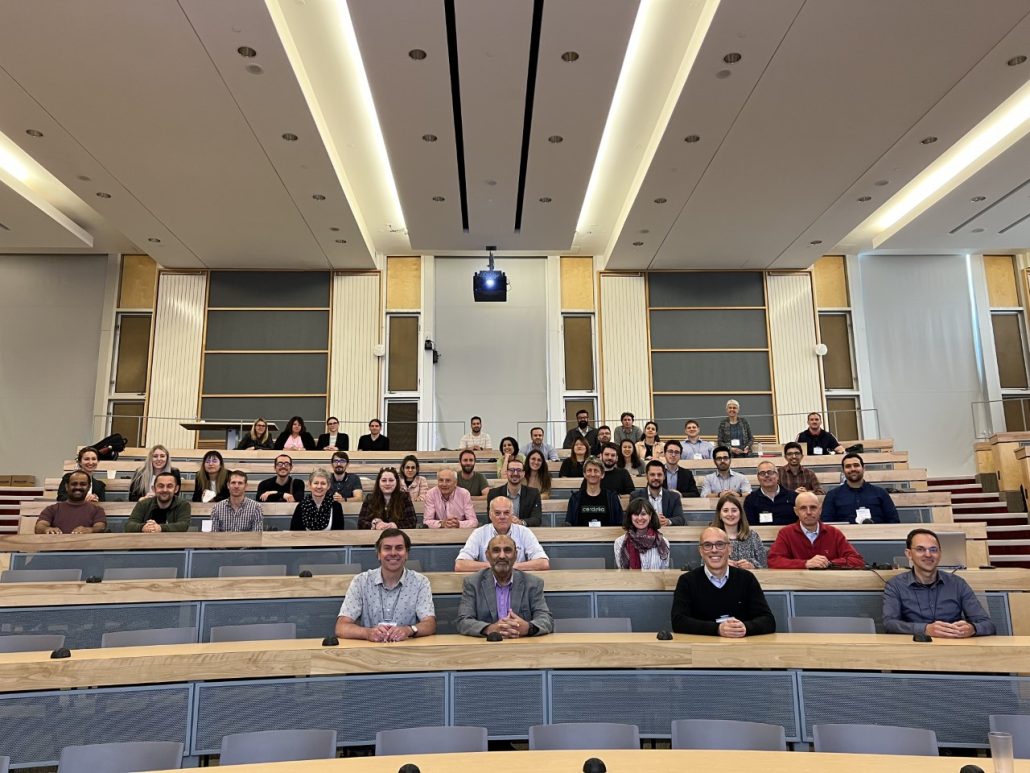
#GEOTECUJI in @aime_2022
Our GEOTEC colleagues Miguel Matey Sanz and Sven Casteleyn presented a paper at the 20th International Conference on Artificial Intelligence in Medicine (AIME 2022), hosted by by Dalhousie University in Halifax (Nova Scotia, Canada), where breakthroughs of AI in the field of medicine are exhibited and discussed.
The presente work, titled “Instrumented Timed Up and Go test using inertial sensors from consumer wearable devices” is part of Miguel’s PhD thesis and research activities of the national SyMptOMS-ET project (ET stadats for Exposure Therapy). It describes a system aimed to automate the calculation of the Timed Up and Go (TUG) test, a well-known mobility test used to assess the risk of falling in elderly people. The described system, composed by a smartwatch and a smartphone, is able to automatically obtain the results of the test, from its total duration to the duration of each test’s subphase in a non-intrusive way. The data collection is performed by the wearable device, real-time data processing and machine learning powered activity inference is delegated to the paired smartphone. The machine learning model is a Multilayer Perceptron composed by one input and one hidden layer with 256 neurons each and an output layer is composed by 5 neurons. It is trained offline, before being converted to a TensorFlow Lite version to run, in real-time, on the smartphone.

AIME 2022 Proceedings will be made available soon. Meanwhile, the citation and abstract of the paper are below.
Miguel Matey-Sanz, Alberto González-Pérez, Sven Casteleyn, Carlos Granell. Instrumented Timed Up and Go test using inertial sensors from consumer wearable devices. In Michalowski, M., Syed Sibte Raza Abidi, Samina Abidi, S. (eds): Artificial Intelligence in Medicine. AIME 2022. Lecture Notes in Computer Science, vol 13263. Springer, Cham. Halifax, NS, Canada, June 14–17, 2022. ISBN: 978-3031093418
Precision medicine pursues the ambitious goal of providing personalized interventions targeted at individual patients. Within this vision, digital health and mental health, where fine-grained monitoring of patients form the basis for so-called ecological momentary assessments and interventions, play a central role as complementary technology-based and data-driven instruments to traditional psychological treatments. Mobile devices are hereby key enablers: consumer smartphones and wearables are ubiquitously present and used in daily life, while they come with the necessary embedded physiological, inertial and movement sensors to potentially recognise user’s activities and behaviors. In this article, we explore whether real-time detection of fine-grained activities – relevant in the context of wellbeing – is feasible, applying machine learning techniques and based on sensor data collected from a consumer smartwatch device. We present the system architecture, whereby data collection is performed in the wearable device, real-time data processing and inference is delegated to the paired smartphone, and model training is performed offline. Finally, we demonstrate its use by instrumenting the well-known Timed Up and Go (TUG) test, typically used to assess the risk of fall in elderly people. Experiments show that consumer smartwatches can be used to automate the assessment of TUG tests and obtain satisfactory results, comparable with the classical manually performed version of the test.
Next year’s AIME conference will be hosted in Europe. Hope to see there you all again!

- Posted by geoadmin
- On 30 June, 2022
- 0 Comments




0 Comments